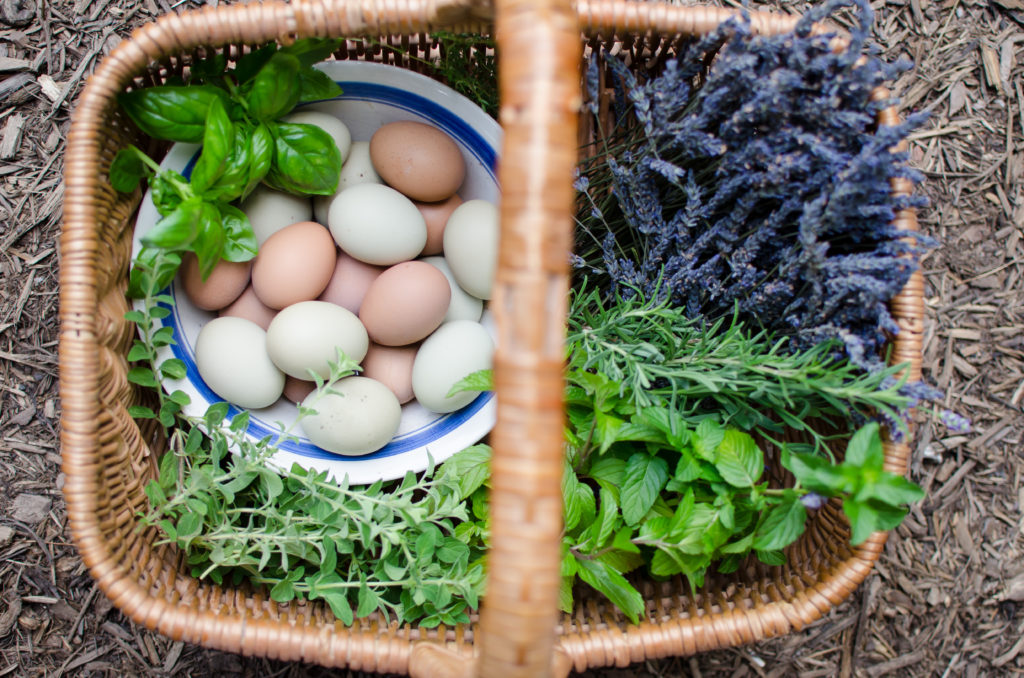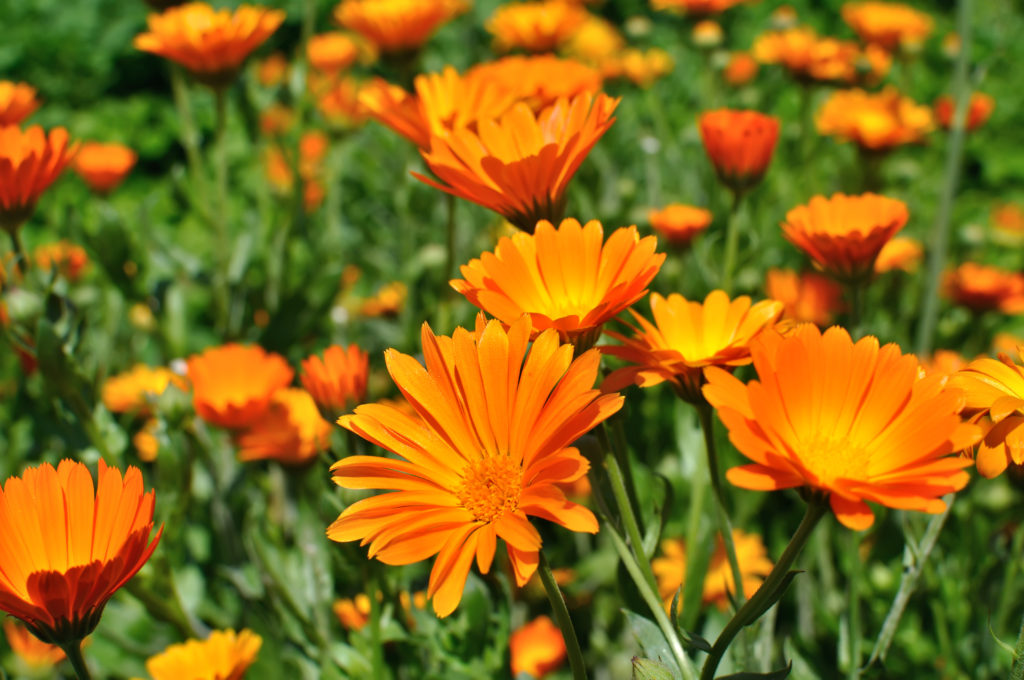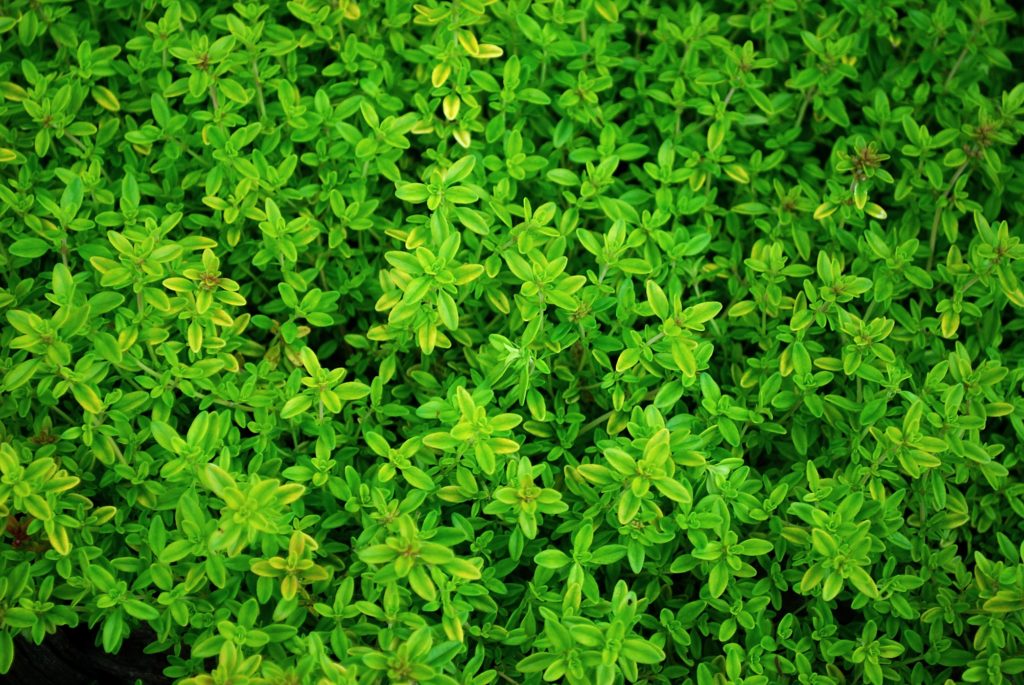While we often think of herbs in terms of cooking, they’re also an excellent tool for keeping your flock healthy. Amy Fewell shares tips and specific herb information to help you heal wounds and protect your chickens.

Eggs and herbs. Photo by author.
Holistic Living
We started our homesteading adventure in 2010 when our son was diagnosed with childhood asthma. Herbalism and natural remedies encouraged a back-to-the-land way of living for all of us and we soon added chickens, ducks, and other critters to our homestead. For the first year I didn’t think much beyond the basics for raising our livestock. But when I finally had that “aha!” moment that we should be raising our livestock just as holistically as we raise ourselves, I knew life would be changed forever for us.
Herbs
Raising livestock holistically simply means that we choose herbs and natural remedies over chemical alternatives. We use herbs in their raw form (dried or fresh) in tinctures, salves, and even essential oils. Herbal medicine is essential to preventing disease and illness. We use herbs, first and foremost, to keep our flock healthy, rather than trying to fix them when they’re already sick. We can prevent issues from arising by living a holistic and herbal way of life in the barnyard, just as we do in our home.
Our Healthiest Flock Ever
We now have one of the healthiest flocks (and other livestock) that we’ve ever had, and it’s all thanks to some simple, preventative herbal practices.
The larger homestead and backyard chicken community is still pretty divided on the usefulness of herbs in poultry health. When I became interested in raising our chickens holistically, I took several herbalism courses that focused on the science behind herbal medicine. The courses reinforced my choice to add herbalism to my livestock management practices. Herbalism, especially as preventative medicine, isn’t just hearsay, or something a blogger picked up or randomly Googled. There is solid research and I have become an outspoken advocate for holistic animal husbandry.

Eggs and lavender. Photo by author.
Preventing Ailments with Herbs
Chickens can be quite fragile in terms of health. They are often more susceptible to disease than other livestock on your homestead, so maintaining their health is of the utmost importance.
It’s always better to prevent simple infections, such as bumblefoot, or stave off a more complex respiratory ailment, than fix an existing illness. Because there aren’t really any quick herbal fixes, you have to plan ahead more with herbs to have a healthy flock. When sickness does arise, the treatment periods will be slow and gentle, and you’ll need to be very attentive. Herbalism is still the best option when treating your animals holistically, but just know that it can take a little longer than modern medicine.
Here’s an example. By the time you notice one of your animals has intestinal parasites, it’s probably too late for herbs to treat the problem effectively. Internal parasites are extremely aggressive and hard to get rid of without chemical treatment. While it’s possible to get rid of them with herbs, your animals may become too stressed before the herbs begin to work efficiently. This is why using anti-parasitic herbs as a preventative measure is far more effective and easier on your animals than trying to treat parasites after they have invaded.
I am not advocating that modern (chemical) medicine be abandoned when working with your animals. There are definitely times when you should be using modern medicines to treat your livestock quickly. Just remember that you’re working with domesticated animals who many not retain some of the genetic healing traits that their wild ancestors had. Herbalism is an inexpensive and effective way to keep your flock healthy and avoid costly medical treatments.

Some of the herbs and treats you can feed your chickens. Photo by author.
Incorporate Herbs into Poultry Husbandry
The two easiest ways to incorporate herbs as preventatives and treatments is through feed and water. You can make a dried herbal mix (or give fresh) to incorporate into your chicken feed ration every morning. Or you can make an herbal mix (dried or fresh) to add into your chicken’s waterer each day. You can mix and match any of the herbs listed in this article.
Dry Herb Mix
Here is one of my favorite dry herb mixes:
You can dry your own, or purchase dried herbs in bulk. Herbs from co-ops and health food stores are often fresh and easy to find in the quantities you’ll need. Mix together equal parts of
-Thyme
-Oregano
-Echinacea
-Garlic
-Lemon Balm
-Stinging Nettle
Mix a cup of the herbs in with the chickens’ daily feed (or at least a couple of times a week). I don’t recommend trying to store the herb mix with pellets or crumbles in your feed storage bin or container, as the herbs will tend to filter to the bottom and never reach your chickens. Use dried herb leaves rather than powders; the chickens can easily peck up the leaves, but not the powder.
Herb Tea
You can place fresh or dried herbs directly into your chickens’ water container. The birds will drink the water, and nibble on the leaves as they drift out of the container. Be sure to change the water daily, rinse out the container carefully, and add new herbs so they don’t rot.
For herbs that are hard—such as roots, berries, and barks—it’s best to make a decoction instead of a tea. A decoction is made by boiling the herbs for 10 minutes instead of just steeping them in water. Leaves and more delicate herbs can be turned into a tea simply by steeping them for 10 minutes in hot water.
Herb Oatmeal
If you don’t want to, or can’t, give your birds herbs daily, there are a couple of other ways to share the supplements with them. Herbal oatmeal is a nice once-a-week treat to offer your flock, but you won’t want to give it to them daily as it can cause diarrhea. You can cook up a batch of oatmeal and add herbs, seeds, and molasses to it for a wide spectrum nutritional supplement.
Herbal Anti-Parasitic Tincture
You have to plan ahead to make a tincture, as they need 4 to 6 weeks to mature, but once made, the concentrated liquid is on hand when you need it. Tinctures are traditionally made with alcohol as the liquid medium to extract the nutrients from the herbs. However, you can use glycerin instead. For specific details about making and cautions about using tinctures, look at my book The Homesteader’s Herbal Companion.
My Favorite 5 Herbs for a Healthy Flock
Here are some of my favorite herbs to incorporate into your flock’s herbal regimen. While there are a plethora of herbs you can use, these are my go-to herbs for anyone just getting started.
Astragalus (Astragalus membranaceus)
Astragalus is most commonly known for stimulating the immune system and is one of the most beneficial herbs you can offer to your chickens. In fact, a study done in 2013 proved that astragalus helped prevent avian influenza in some birds and limited the duration of the illness in others.

Astragalus cicer or chickpea milkvetch. Getty Images
As an anti-inflammatory, astragalus can help chickens adapt to stress; it’s also an antibacterial and antiviral that can help with generalized respiratory infections.
If you’re looking for a powerhouse herb to help prevent (and if necessary treat) respiratory issues and boost immunity in your flock, keep this herb on hand at all times.
Calendula (Calendula officinalis)

Calendula officinalis. Part of the daisy family Asteraceae, often known as marigolds. Getty Images.
Many gardeners and backyard chicken keepers have this growing in their gardens already. Calendula is a natural anti-inflammatory, and helps promote digestive tract health. But more importantly, it is packed full of omega-3s, vitamins E and K, and B-complex vitamins. This means that your egg yolks will come out a deep, rich-orange color, full of necessary nutrients and omega-3s for your own body!
Oregano (Origanum vulgare)

Oregano in the garden, Photo by author.
Some commercial meat and egg producers have switched to offering oregano and thyme in their chicken feed on a regular basis instead of chemicals and antibiotics. This should tell you something right away! Oregano is a natural antibiotic and antibacterial, and it detoxifies the body, aids in respiratory health, and helps the reproductive system.
Sage (Salvia officinalis)
We often think of sage when cooking homestead dishes, but sage is a great herb for your chickens when they’re alive and well! Most importantly, it helps treat viral and fungal infections, and prevent them, too. It also aids in digestion.

Sage is an evergreen subshrub and a member of the mint family Lamiaceae. Getty Image.
Sage is rich in vitamins A and C, and B-complex vitamins, and is also a great source of beta-carotene.
Thyme (Thymus vulgaris)
Thyme is my favorite herb of all time. We use it with every single animal on our homestead. Thyme is naturally anti-parasitic and antibacterial. The herb also aids the respiratory system, relieves infection, and is packed full of omega-3s that supports brain and heart health. Thyme is also rich in vitamins A, C, and B6, as well as fiber, iron, riboflavin, manganese, and calcium.

Thyme. Getty Images.
Current Research
The field of research into herbal supplements and poultry health is relatively new. However, there are more and more promising and well researched studies appearing in the scientific literature. Some other herbs you might enjoy giving to your chickens are garlic (great for general health and helps keep mites and lice away) and stinging nettle (keeps away parasites and is great for respiratory health).

Hen with baby chickens
There are also many wild edible herbs you could offer your chickens on a regular basis, including purslane, red clover, and plantain. The wonderful world of herbs and chicken keeping collide and go hand in hand more than we may realize.
Amy Fewell is an author, homesteader, and the founder of the Homesteaders of America. She is the author of The Homesteader’s Herbal Companion and The Homesteader’s Natural Chicken Keeping Handbook. She lives in the foothills of the Blue Ridge Mountains in Virginia, where she and her family holistically and naturally raise their livestock, gardens, and mini-homesteaders! You can follow her doings at The Fewell Homestead.













9 Comments
I’ve always used apple cider vinegar (with the mother) in my chicken, ducks, geese’s water. Now starting fresh garlic! So my question is could I offer this herb mixture you mentioned daily or only when I notice everyone needs a boost? Is parsley and mint also good herbs? I’m growing those in my garden.
Also, if I am growing ant of the herbs you mentioned, what parts can be fed to chickens and in what form? For example echinacea, can I feed both the flower and the leaves? Or just the flower?
You can feed the flowers and leaves
In what form are you feeding garlic? Your dry herb mix calls for garlic and says to use dried leaves however I have never heard of dried garlic leaves.
It doesn’t say anything about dried garlic leaves. I would use crushed garlic cloves either fresh or dried.
In reading about beneficial herbs for chickens, Sage is listed. I grow pineapple sage for the pretty flowers and was wondering if this could be a substitute or if the plants are too different to sub for each other.
Yes! You can use pineapple sage as well
Muito bom
Obrigado!